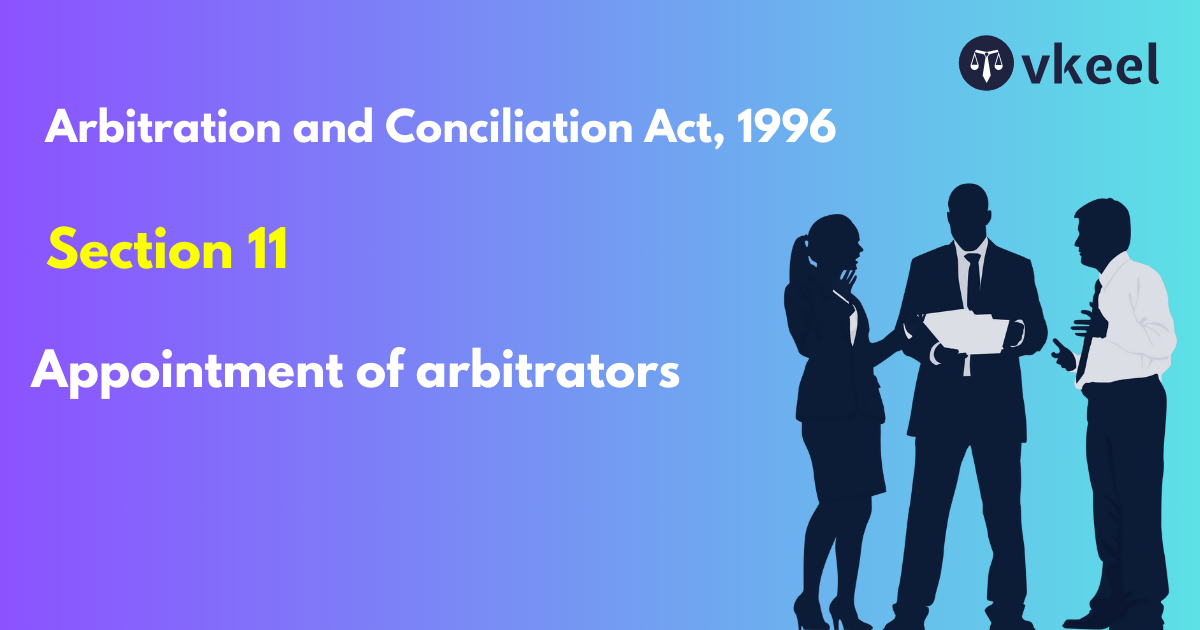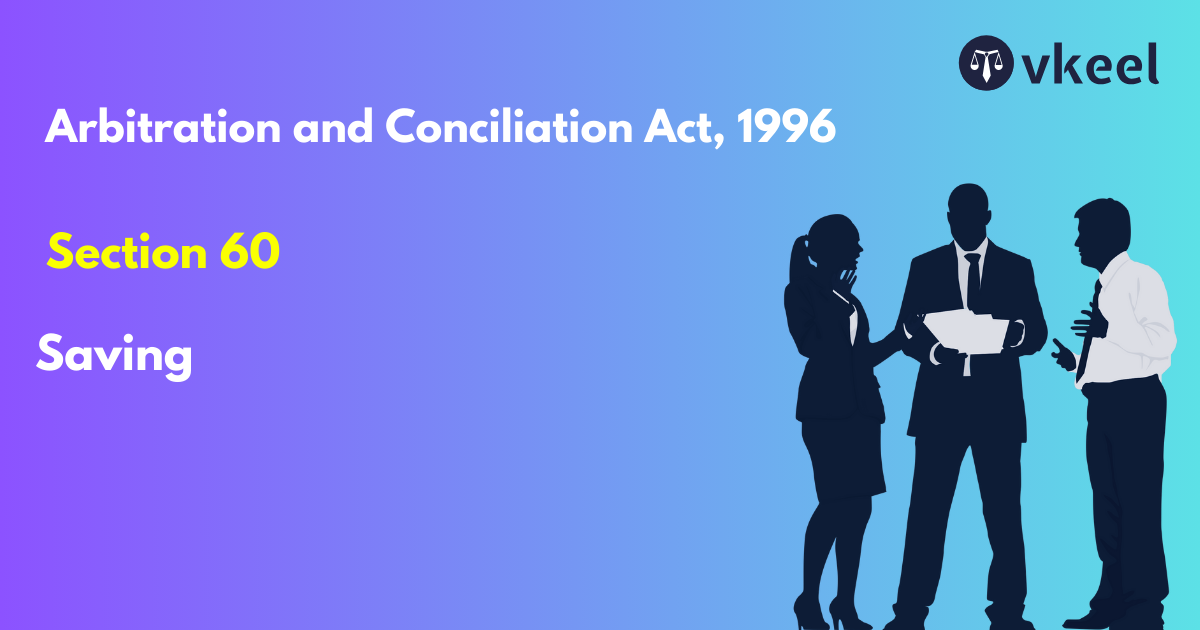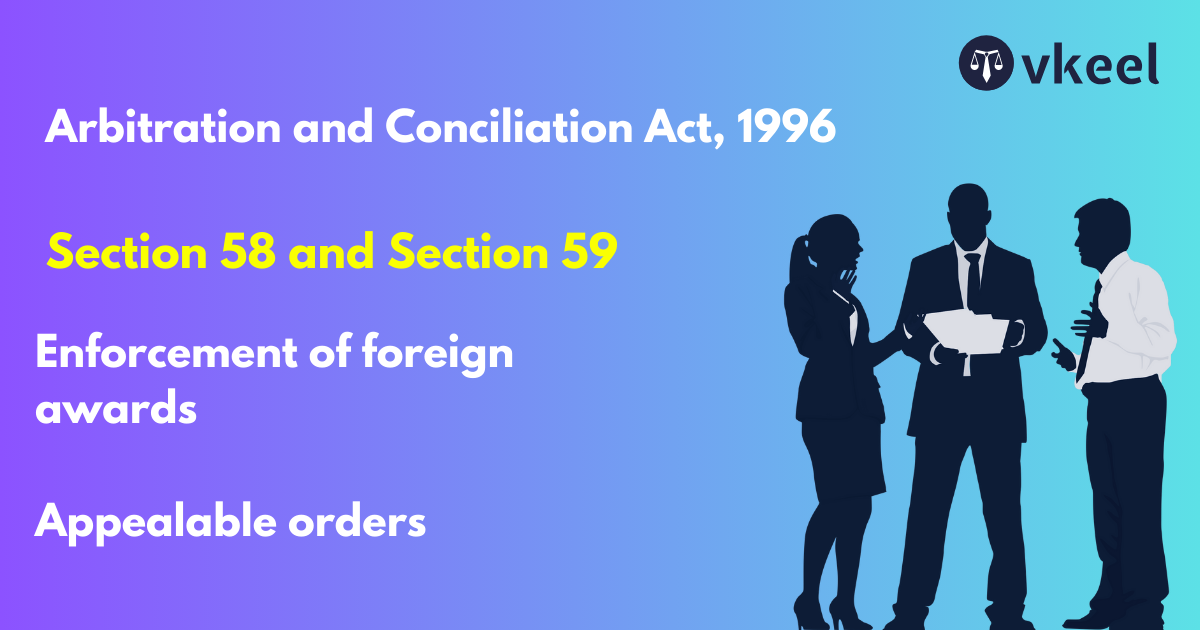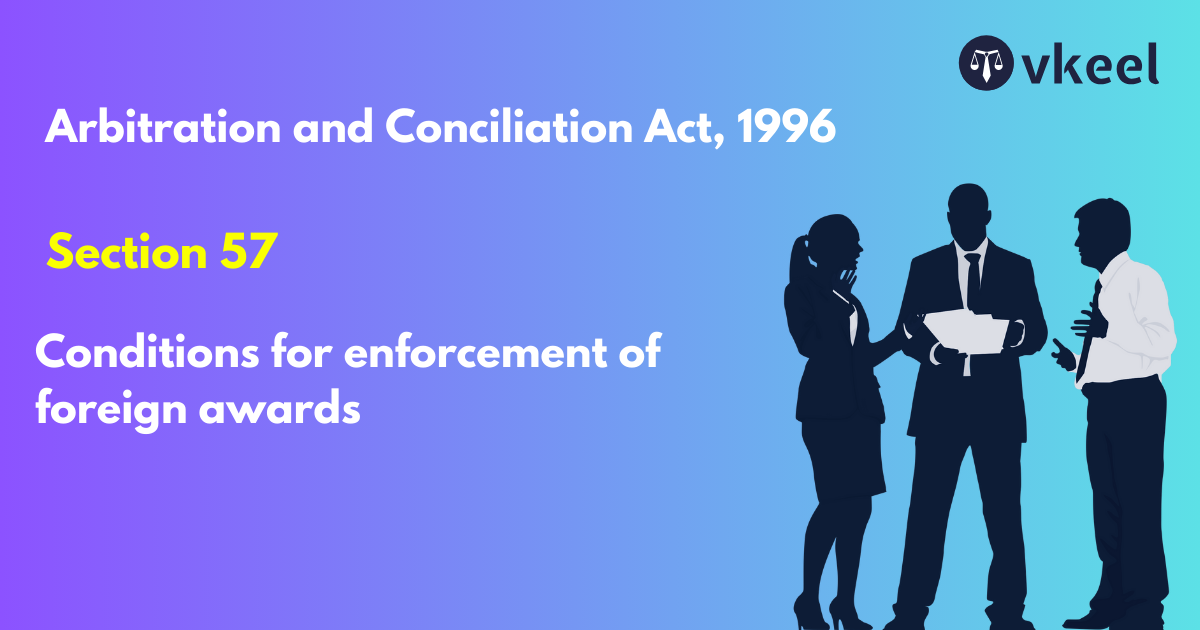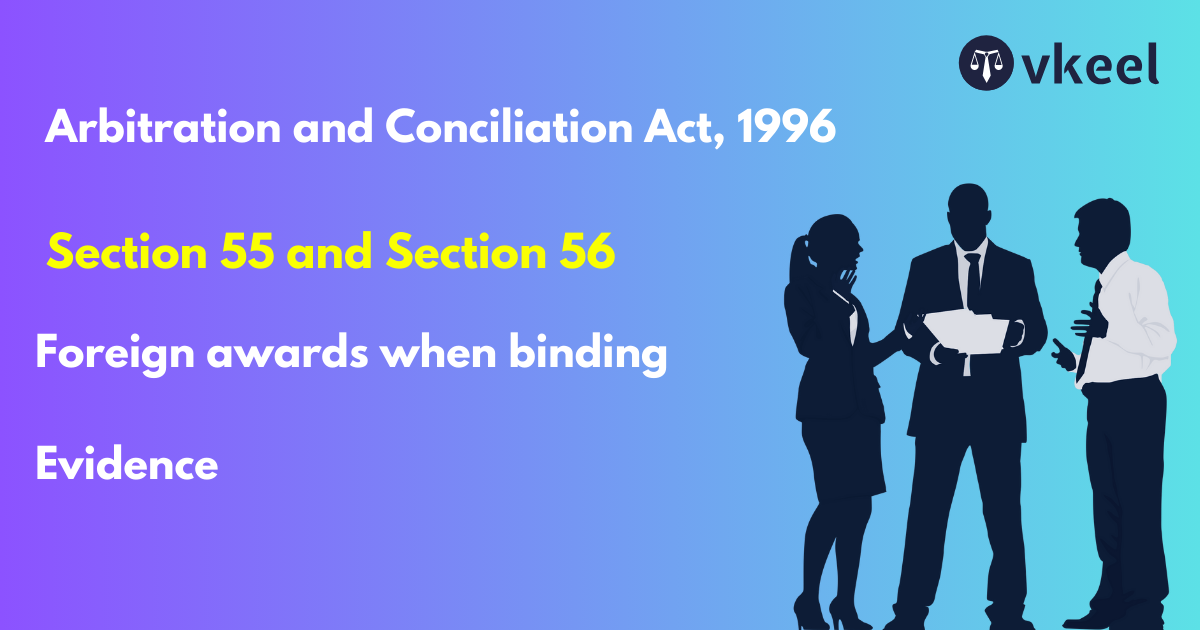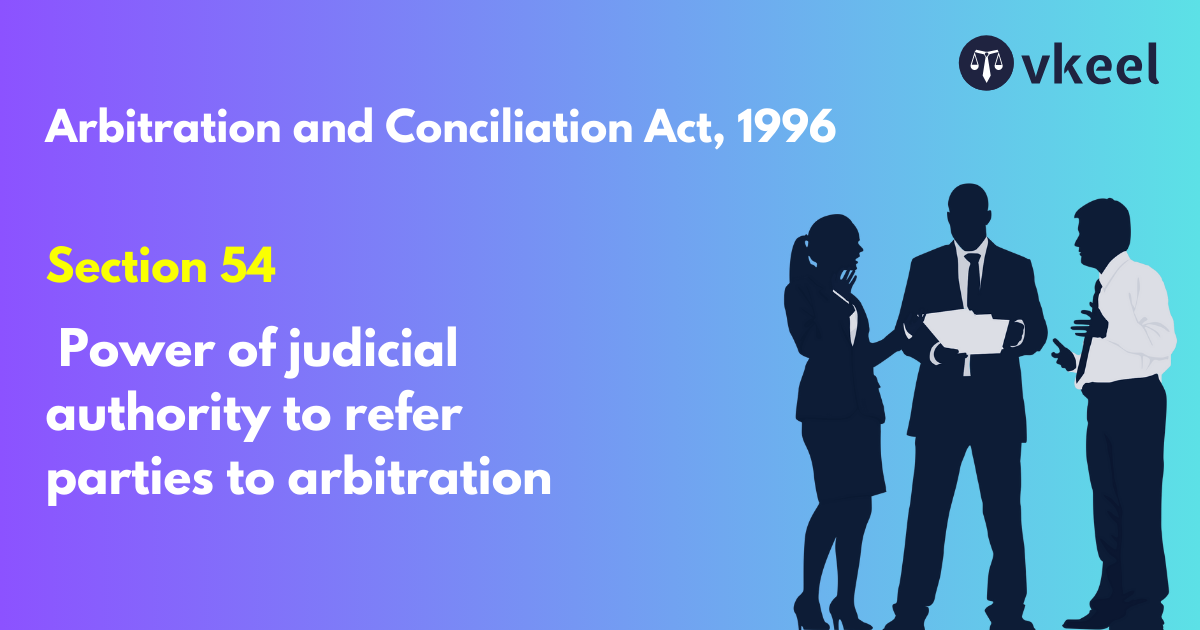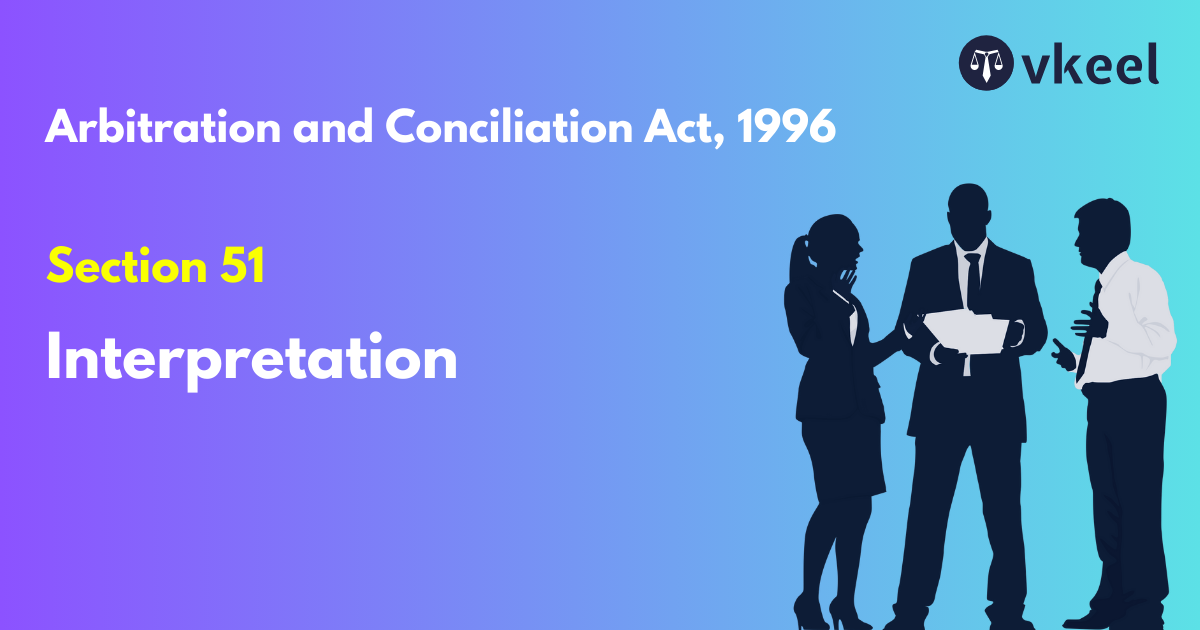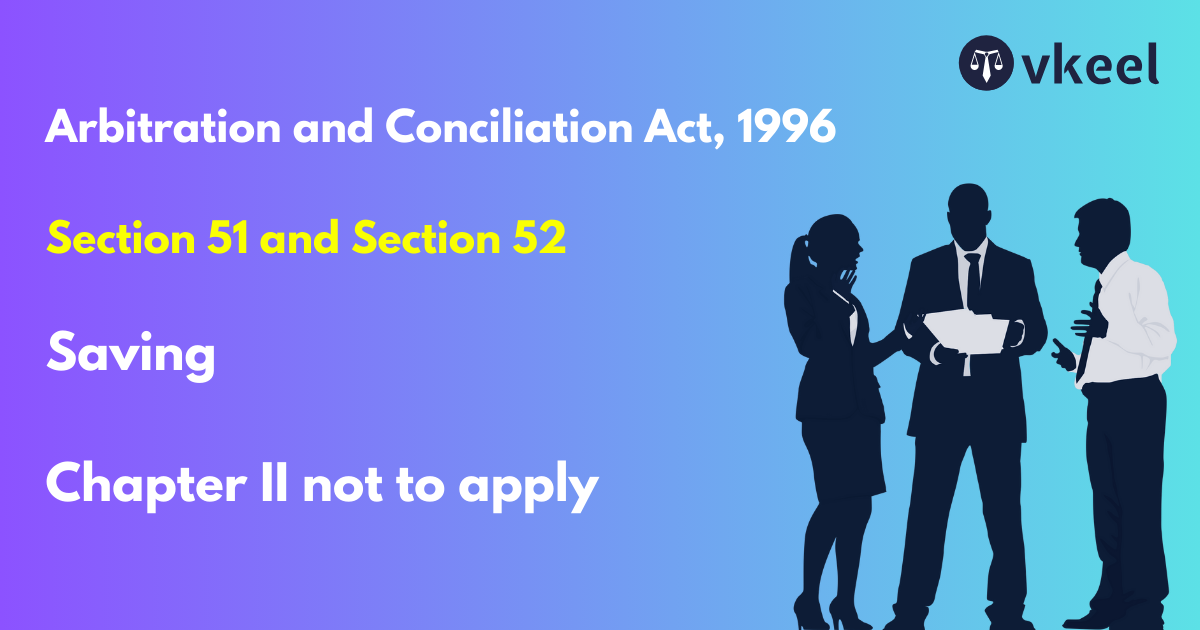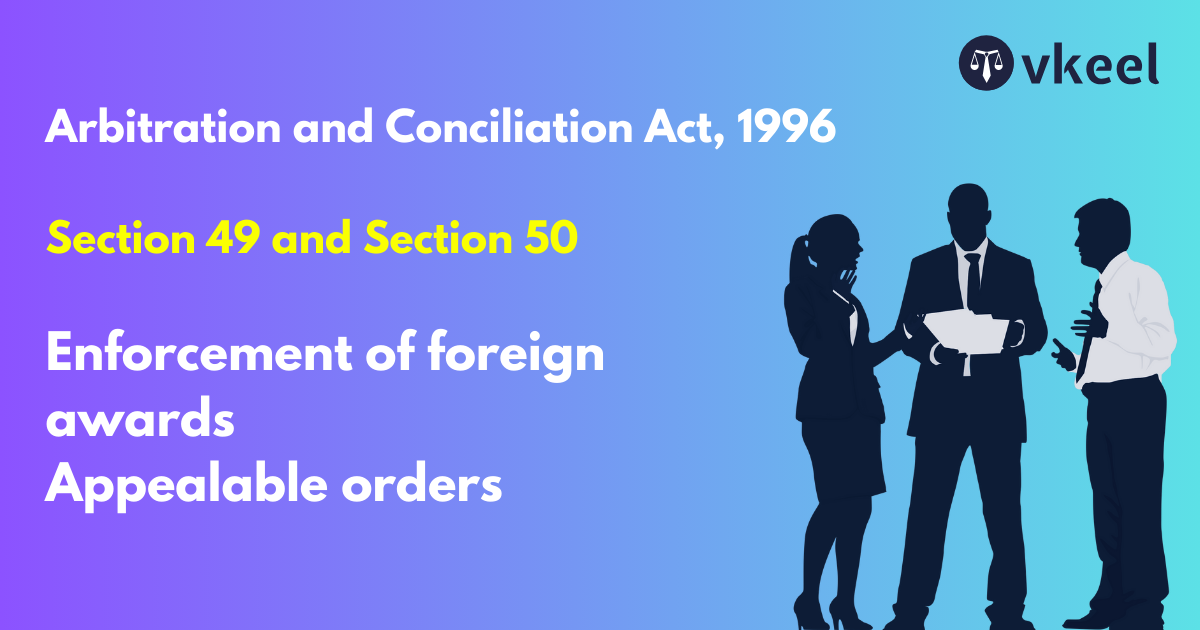Section 11: Arbitration and Conciliation Act, 1996
By Nivedita Dhiman
Table of Contents
Introduction
Section 11 of The Arbitration and Conciliation Act, 1996 enumerates the number of arbitrators which are valid in the arbitral proceedings. In a situation where conflict and disturbances arise between the parties. The arbitration between the requisite parties serve the resolution through a named arbitrator. The Act and its respective provisions have not put any bar or any sort of boundary with regards to the nationality of a person who may be pointed as an arbitrator. Thereafter if the agreement made between the parties prohibits appointment of arbitrators of a specific nationality, then any appointment made afterwards, distinctive from as mentioned in the former shall be perceived bad in the eyes of law. Such an appointment deserves to be set aside by the fiction of law.
Section 11 of Arbitration and Conciliation Act, 1996
Appointment of Arbitrators-
(1) A person of any nationality may be an arbitrator, unless otherwise agreed by the parties.
(2) Subject to sub-section (6), the parties are free to agree on a procedure for appointing the arbitrator or arbitrators.
(3) Failing any agreement referred to in sub-section (2), in an arbitration with three arbitrators, each party shall appoint one arbitrator, and the two appointed arbitrators shall appoint the third arbitrator who shall act as the presiding arbitrator. (3A)[ The Supreme Court and the High Court shall have the power to designate, arbitral institutions, from time to time, which have been graded by the Council under section 43-I, for the purposes of this Act: Provided that in respect of those High Court jurisdictions, where no graded arbitral institution are available, then, the Chief Justice of the concerned High Court may maintain a panel of arbitrators for discharging the functions and duties of arbitral institution and any reference to the arbitrator shall be deemed to be an arbitral institution for the purposes of this section and the arbitrator appointed by a party shall be entitled to such fee at the rate as specified in the Fourth Schedule: Provided further that the Chief Justice of the concerned High Court may, from time to time, review the panel of arbitrators.] [Inserted by Act No. 33 of 2019, dated 9.8.2019.]
(4) If the appointment procedure in sub-section (3) applies and
(a) a party fails to appoint an arbitrator within thirty days from the receipt of a request to do so from the other party; or
(b) the two appointed arbitrators fail to agree on the third arbitrator within thirty days from the date of their appointment, [the appointment shall be made, on an application of the party, by the arbitral institution designated by the Supreme Court, in case of international commercial arbitration, or by the High Court, in case of arbitrations other than international commercial arbitration, as the case may be] [Substituted by Act No. 33 of 2019, dated 9.8.2019.]
(5) Failing any agreement referred to in sub-section (2), in an arbitration with a sole arbitrator, if the parties fail to agree on the arbitrator within thirty days from receipt of a request by one party from the other party to so agree [the appointment shall be made on an application of the party in accordance with the provisions contained in sub-section (4).] [Substituted by Act No. 33 of 2019, dated 9.8.2019.].
(6) Where, under an appointment procedure agreed upon by the parties
(a) a party fails to act as required under that procedure; or
(b) the parties, or the two appointed arbitrators, fail to reach an agreement expected of them under that procedure; or
(c) a person, including an institution, fails to perform any function entrusted to him or it under that procedure, a [the appointment shall be made, on an application of the party, by the arbitral institution designated by the Supreme Court, in case of international commercial arbitration, or by the High Court, in case of arbitrations other than international commercial arbitration, as the case may be] [Substituted by Act No. 33 of 2019, dated 9.8.2019.] to take the necessary measure, unless the agreement on the appointment procedure provides other means for securing the appointment.
(6A) [ ***] [Omitted ‘(6A) The Supreme Court or, as the case may be, the High Court, while considering any application under sub-section (4) or sub-section (5) or sub-section (6), shall, notwithstanding any judgment, decree or order of any Court, confine to the examination of the existence of an arbitration agreement’ by Act No. 33 of 2019, dated 9.8.2019.]
(6B) [ The designation of any person or institution by the Supreme Court or, as the case may be, the High Court, for the purposes of this section shall not be regarded as a delegation of judicial power by the Supreme Court or the High Court.] [Inserted by Act No. 3 of 2016 dated 31.12.2015.]
(7) [ ***] [Omitted ‘(7) A decision on a matter entrusted by sub-section (4) or sub-section (5) or sub-section (6) to the Supreme Court or, as the case may be, the High Court or the person or institution designated by such Court is final and no appeal including Letters Patent Appeal shall lie against such decision’ by Act No. 33 of 2019, dated 9.8.2019.](
(8) [ [The arbitral institution referred to in sub-sections (4), (5) and (6)] [Substituted by Act No. 3 of 2016 dated 31.12.2015.], before appointing an arbitrator, shall seek a disclosure in writing from the prospective arbitrator in terms of sub-section (1) of section 12, and have due regard to-
(a) any qualifications required for the arbitrator by the agreement of the parties; and
(b) the contents of the disclosure and other considerations as are likely to secure the appointment of an independent and impartial arbitrator.]
(9) In the case of appointment of sole or third arbitrator in an international commercial arbitration, [the arbitral institution designated by the Supreme Court] [Substituted ‘the Supreme Court or the person or institution designated by that Court’ by Act No. 33 of 2019, dated 9.8.2019.] may appoint an arbitrator of a nationality other than the nationalities of the parties where the parties belong to different nationalities.
(10) [ ***] [Omitted ‘(10) The Supreme Court or, as the case may be, the High Court, may make such scheme as the said Court may deem appropriate for dealing with matters entrusted by sub-section (4) or sub-section (5) or sub-section (6), to it.’ by Act No. 33 of 2019, dated 9.8.2019.]
(11) [ Where more than one request has been made under sub-section (4) or sub-section (5) or sub-section (6) to different arbitral institutions, the arbitral institution to which the request has been first made under the relevant sub-section shall be competent to appoint.
(12) Where the matter referred to in sub-sections (4), (5), (6) and (8) arise in an international commercial arbitration or any other arbitration, the reference to the arbitral institution in those sub-sections shall be construed as a reference to the arbitral institution designated under sub-section (3A).
(13)An application made under this section for appointment of an arbitrator or arbitrators shall be disposed of by the arbitral institution within a period of thirty days from the date of service of notice on the opposite party.
(14) The arbitral institution shall determine the fees of the arbitral tribunal and the manner of its payment to the arbitral tribunal subject to the rates specified in the Fourth Schedule. Explanation. – For the removal of doubts, it is hereby clarified that this sub-section shall not apply to international commercial arbitration and in arbitration’s (other than international commercial arbitration) where parties have agreed for determination of fees as per the rules of an arbitral institution.] [Substituted by Act No. 33 of 2019, dated 9.8.2019.]
Landmark Judgements
VeluGubanti Haribabu vs Parvathini Narsimha Rao, 2016
A dispute arose in relation to execution of MOU. Appellant in reply to notice given by the respondent specifically denied having signed or executed such agreement/MOU, and also contended that it was a bogus and fabricated document. It was held that Appellant having denied MOU in appropriate proceedings, the plea that Appellant should not be allowed to raise such an issue in section 11 proceedings was held as not tenable.
Agio Countertrade Pvt. Ltd vs Punjab Iron and Steel Co. Ltd
Under sub-sections (5) and (6) of section 11, the Court or any person designated by him to rake necessary measures is required to appoint an arbitrator as provided therein. The contention of the petitioner that since the respondent-company has been declared a Sick Industrial Company under the Sick Industrial Companies (Special Provisions) Act, 1985, and a scheme for the said Company has also been framed under the said Act, an arbitrator should not be appointed, was not accepted.
Atlaz Degi Tel Pvt Ltd. vs Ablaz Technology Pvt. Ltd, 2002
Merely because an act has a civil profile it is not sufficient to denude it of its criminal outfit. The provisions incorporated in the agreement for referring the dispute to arbitration is not an effective substitute for a criminal prosecution when the disputed act is an offence.
Conclusion
Thereafter to conclude the aforesaid provisions of the Act which deals with the number of arbitrators exercises the rule of fairness in the arbitral proceedings. Therefore the notice of appointment of presiding arbitrator is deemed to have come into force when the party concerned to the matter conveys their acceptance.
Disclaimer:
The information provided in the article is for general informational purposes only, and is not intended to constitute legal advice or to be relied upon as a substitute for legal advice. Furthermore, any information contained in the article is not guaranteed to be current, complete or accurate. If you require legal advice or representation, you should contact an attorney or law firm directly. We are not responsible for any damages resulting from any reliance on the content of this website.

